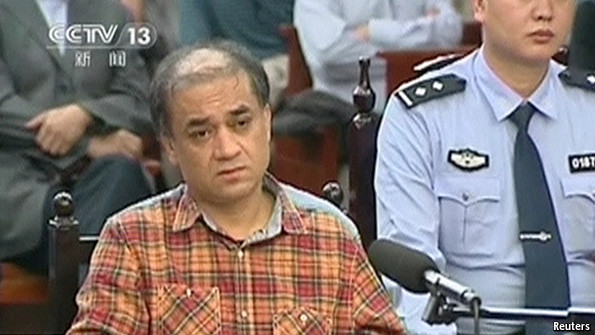
(TibetanReview.net, Oct14, 2016) – China has expressed bitter anger over the fact that a Uyghur scholar whom it had jailed for life for alleged separatism has been given a major international human rights award on Oct 11. China jailed Ilham Tohti, a former professor at the Central University for Nationalities in Beijing, in 2014 over a website he ran that was often critical of China’s official ethnic policies. He has been awarded the Martin Ennals Award 2016, meant for those who “defend human rights with courage in the face of personal risk.”
The award is named after the founder of London-based rights group Amnesty International and is intended to “provide protection through international recognition”. It was received in Tohti’s absence by his daughter at a ceremony in Geneva.
Amnesty said Tohti had worked for two decades to foster dialogue and understanding between the mostly Muslim, Turkic-speaking Uyghurs and the majority Han Chinese.
However, China, on Oct 12, expressed “strong dissatisfaction that the Martin Ennals Award for Human Rights Defenders was granted to Chinese separatist teacher Ilham Tohti”. Its official Xinhua news agency Oct 12 cited Foreign Ministry spokesperson Geng Shuang as maintaining that Tohti had planned and organized a series of separatist criminal activities, that his trial was held with strict adherence to Chinese law, and that China’s internal affairs and judicial sovereignty could not be interfered with.
China also criticized the UN High Commissioner for Human Rights Mr Zeid Ra’ad al-Hussein for attending the award ceremony. The report cited Geng as saying the attendance of the senior UN official, “severely goes against the principles and purposes of the UN Charter” and “interferes in China’s domestic affairs.”
The prize is judged by Amnesty, along with Human Rights Watch and other rights groups.


